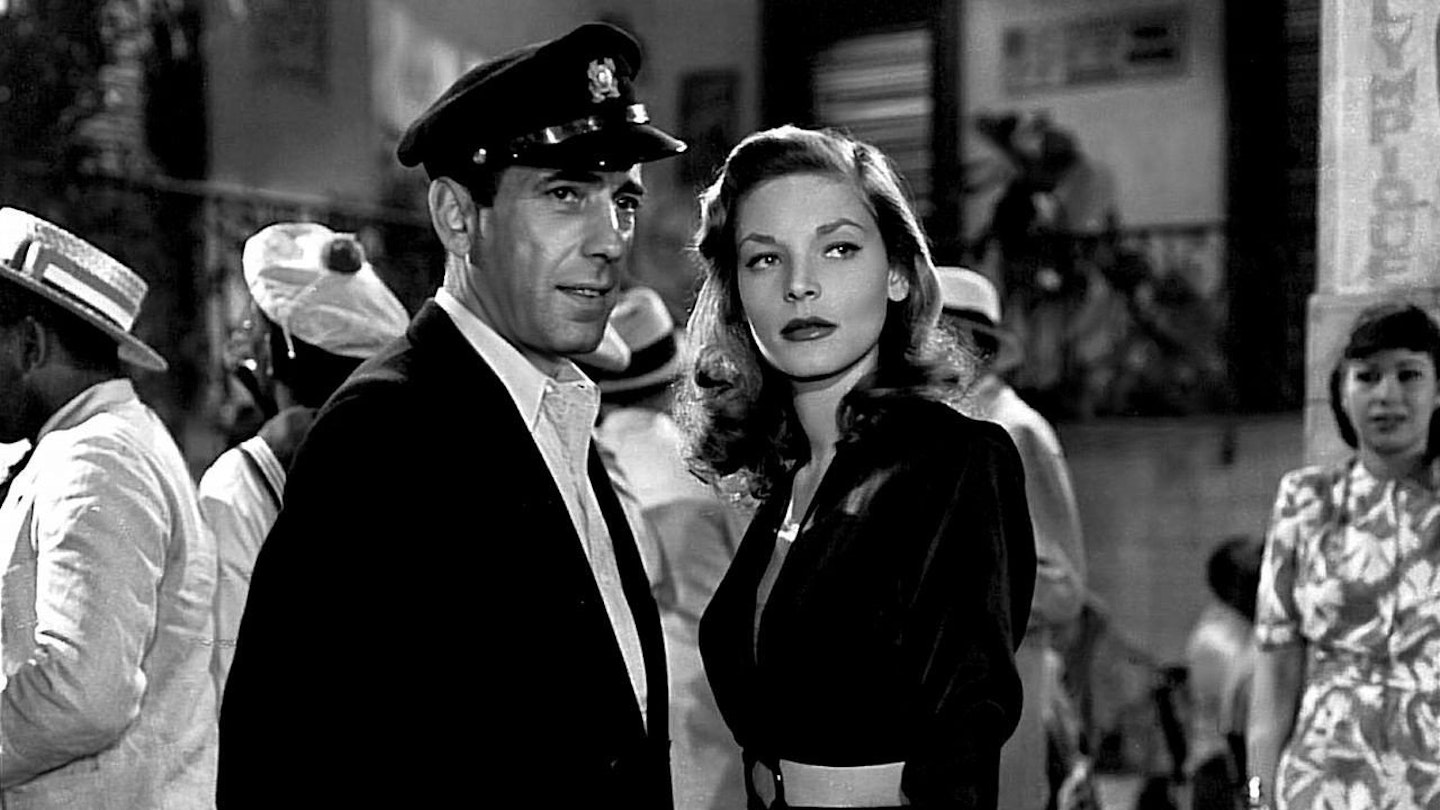According to Hollywood legend, this film came about when Howard Hawks made a bet with Ernest Hemingway that he could make a good movie out of his worst novel. Although he won his wager, Hawks actually ditched most of To Have and Have Not and worked instead from a screenplay written by regular collaborator Jules Furthman and William Faulkner (making this the only studio picture to boast two Nobel laureates among its creatives).
Hemingway's scenario wasn't wasted, however, as its ending wound up in John Huston's Key Largo, its basic plotline serviced Michael Curtiz's The Breaking Point and `One Trip Across', the short story from which it had been expanded, resurfaced in Don Siegel's The Gun Runners.
Indeed, Hawks's picture owed more to a brace of earlier Furthman projects - Josef von Sternberg's Morocco and Hawks's own Only Angels Have Wings - and Casablanca, which had recently reinvented Humphrey Bogart as a hard-bitten romantic. In fact, it could be said that Hawks's wife, Nancy, made more of an impact on the project than Hemingway, as Steve' and Slim' were not only the Hawks's pet names, but she had also spotted the teenage Lauren Bacall on the cover of Harper's Bazaar and suggested that she had star quality.
There's no question that the chemistry that developed off screen between Bogie and Bacall impinged upon their scenes together. But she also appears to advantage alongside fellow debutant Hoagy Carmichael, despite some complaining that Hawks slipped in too many numbers to disguise the paucity of his material. Indeed, her singing reinforces comparisons with Marlene Dietrich in Morocco, while Carmichael's saloon pianist recalls Dooley Wilson's Sam in Casablanca.
The dialogue crackles in true Warners fashion, while Hawks uses Bogart's partnership with rummy Walter Brennan to conduct his customary investigation into professional men seeing a tough job through to the end. But the war is too often reduced to a convenient backdrop (with the Free French connection again consciously evoking Casablanca) in what is essentially a terrifically entertaining exercise in studio escapism.
